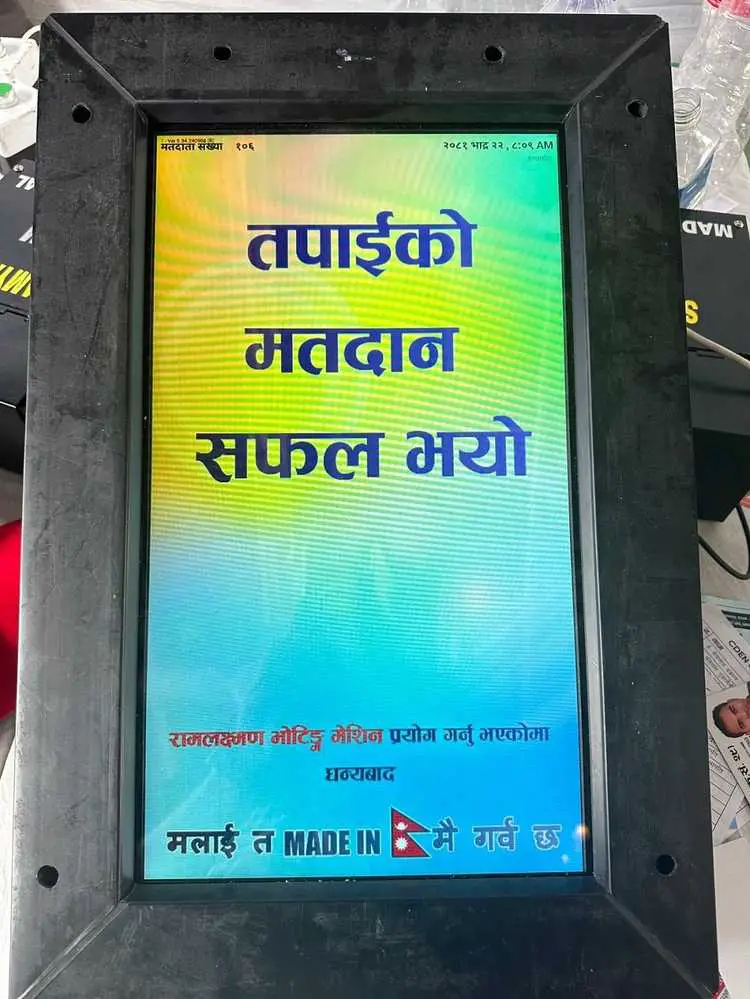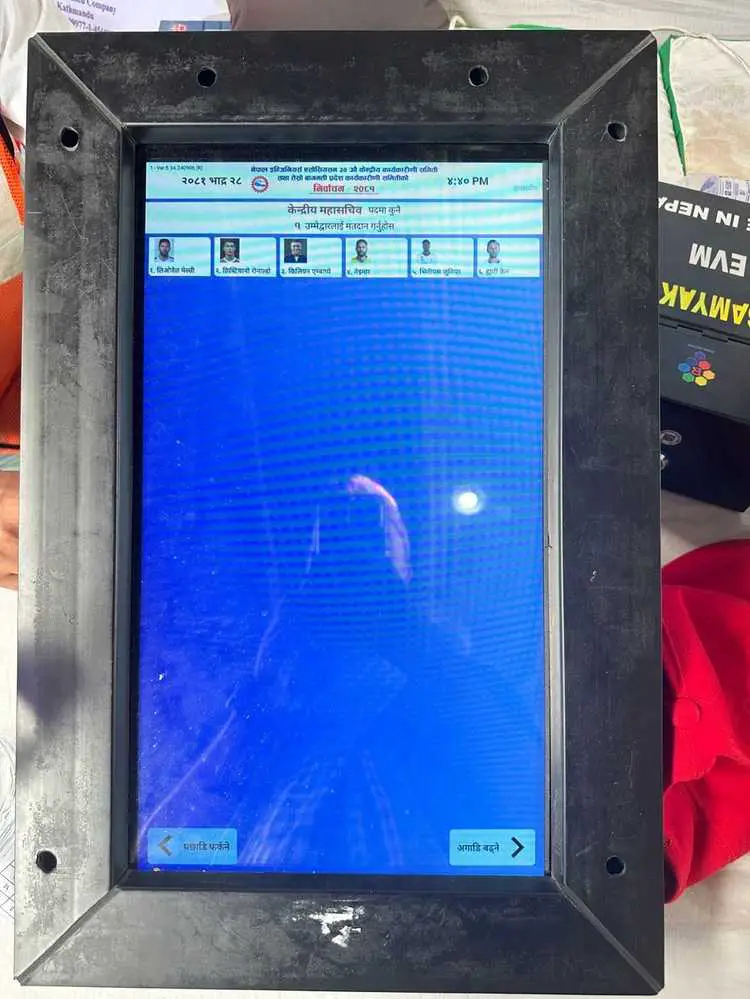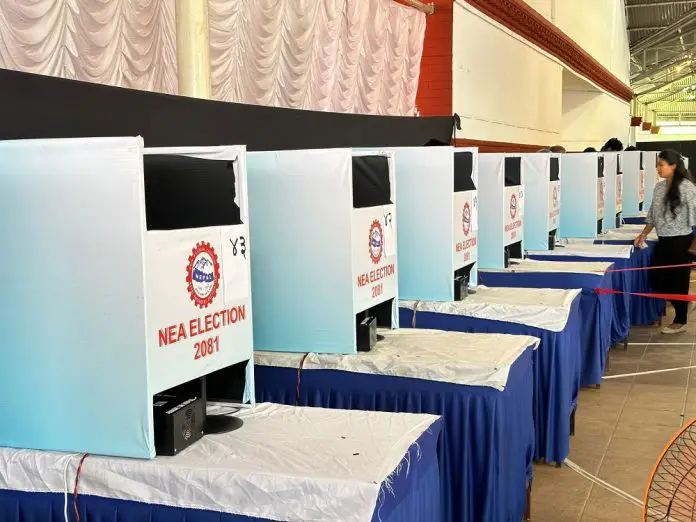Nepal Engineers’ Association (NEA) utilized electronic voting machines (EVM) which ushers in a new hope for the digital practices that have been so rare in elections.
The NEA election was held on Friday, Bhadra 28 (September 13) for engineers in all seven provinces. However, the monumental aspect was the use of EVM. The governing body announced to deploy EVMs and called for an Expression of Interest (EOI) to arrange an e-voting system back in late 2023 and Ramlaxman Innovations brought them for the elections on Bhadra 28.
Electronic voting in Nepal Engineers Association Election made it digital
How did it go? Credit goes to NEA for putting effort into making the electronic voting machines as effective as possible. The EVMs had user-friendly interfaces and multi-language support to accommodate voters from different linguistic backgrounds.
For security, the machines were equipped with voter authentication, end-to-end encryption, secure boot, etc.

In the election, the voting machines accommodated up to 73 votes. Each voter only had to touch the display and then press on the options (candidates) to pick their vote.
A demo install was also used to practice electronic voting before the original election.
Check out: Nepali traffic police now accepts driving license on Nagarik App
Kathmandu and Madhesh Province utilized EVM
For this edition in 2081, electronic voting was used for Kathmandu and Madhesh Province. The good thing is that a precedent has been established. So, in the upcoming NEA elections, EVM could be the protagonist across all provinces.
Prior to this, e-voting has been deployed in internal elections of parties. Likewise, CAN Federation Nepal also used EVM in one of its last elections. This NEA election serves as another instance when a very popular and relevant election put EVM to use.
Prospect for the future
Electronic voting in the Nepal Engineers Association election shows that there is hope for this type of voting in other elections as well. There have been plenty of talks and discussions about going electronic in general elections, and provincial, and local polls.
However, the concerns of having to deal with security and transitioning to a new system have derailed the idea. On the contrary, it’s also argued that EVMs give secure voting and ensure integrity while eliminating the possibility of vote duplications.

However, thanks to the NEA’s successful electronic voting, it could pave the way for EVMs to replace ballot papers in upcoming elections. Let’s stay hopeful.
Do you think Nepal’s major state elections should also go digital by embracing EVMs? Surely they can take some input from the Nepal Engineers Association. What do you think about this? Do share your insights in our comment section below.



